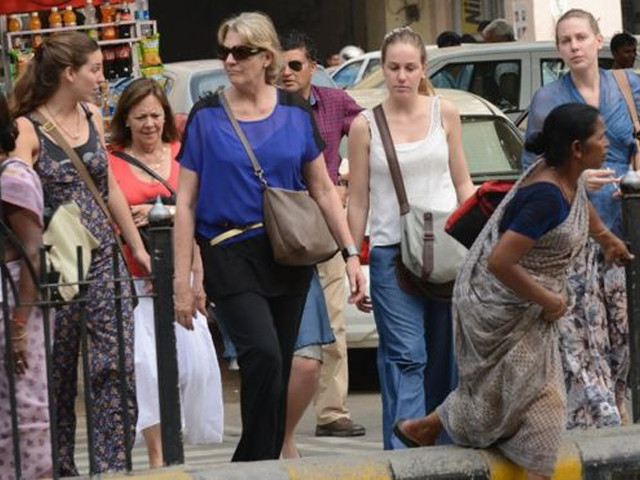Meet Mahesh Sharma, a first time member of Parliament from the ruling Bhartiya Janata Party (BJP), who in his dominant avatar as India’s culture minister, is setting some benchmarks that should never be emulated.
Since discretion is not his forte, Sharma’s new gem has been a far from polite advisory to foreigners visiting India. In what sounded suspiciously like a diktat, he asked women travelling to India to avoid wearing short dresses and skirts for their own safety adding that Indian culture is different from western culture. Much like his controversies earlier, this hasn’t gone down too well, not with the general public or the world of social media.
No skirts, roaming alone for safety: Culture Min #MaheshSharma to women tourists
— Samar (@Samar_Anarya) August 29, 2016
Why not Buy a Cow and roam around with it for more safety?
Culture & Tourism Minister Mahesh Sharma advises tourists not to wear skirts.
— Ramesh Srivats (@rameshsrivats) August 29, 2016
Which means he understands neither culture nor tourism.
Women had greater freedom to wear clothes of their choice in Vedic times than they have in Modi times
— Arvind Kejriwal (@ArvindKejriwal) August 29, 2016
https://t.co/8nKdRAhXIC
Later, the minister did what politicians do best when caught on the wrong foot – he backtracked. Sharma now insists that there was no advisory, he was only showing concern and his suggestions were restricted to visits to religious places. But the damage has been done yet again; the public now knows that this minister should be taken at face value. Sacred places across the world have an unwritten code and only the most disrespectful of people would try and make a mockery of a country’s sentiments.
He’s no stranger to controversies. Just last month the minister was in the spotlight after his private security guard repeatedly slapped a watchman for doing his job and stopping Sharma’s car for verification. But perhaps his biggest headline moment was when he insisted that nights out (for girls) were against India’s culture. This came at a time when corporations were raising the gender equality banner, and double-income families were becoming a norm.
The ruling BJP has often been criticised for not controlling its loose fringe, a band of party men and women who often cause embarrassment to the government by their standalone remarks. Sharma has never left the top perch, and ironically, for someone who should be encouraging tourism due to his job, he has probably put several prospective visitors in a quandary by questioning whether India really is that unsafe to visit.
Every country has its underbelly, India is no different and the increasing crimes against women have justifiably given it a bad name. But this statement from the minister has hit home. A jaded and insecure public has been looking for re-assurance that what we bequeath to our girls will be far safer than where we traverse today.
Sharma has instead put up his hands and more or less admitted that not only are we a dangerous country, but the burden to stay protected is our responsibility, and is reflected by the clothes that we wear. The devil does not differentiate between the Indian and the foreigner.
India is a country that is so rich in its history and culture that even a lifetime of travelling across it may not be enough to capture its essence and beauty. With that kind of a heritage, it takes a lot of effort to make us a laughing stock in the world, but our minister managed to do so quite easily.
Perhaps the writing has been on the wall all along. In fact, Sharma was quoted saying that the time has come to win back our culture from the negative influence of the west. Furthermore, he added that in our culture, women of three generations cook food in the same kitchen.



COMMENTS
Comments are moderated and generally will be posted if they are on-topic and not abusive.
For more information, please see our Comments FAQ